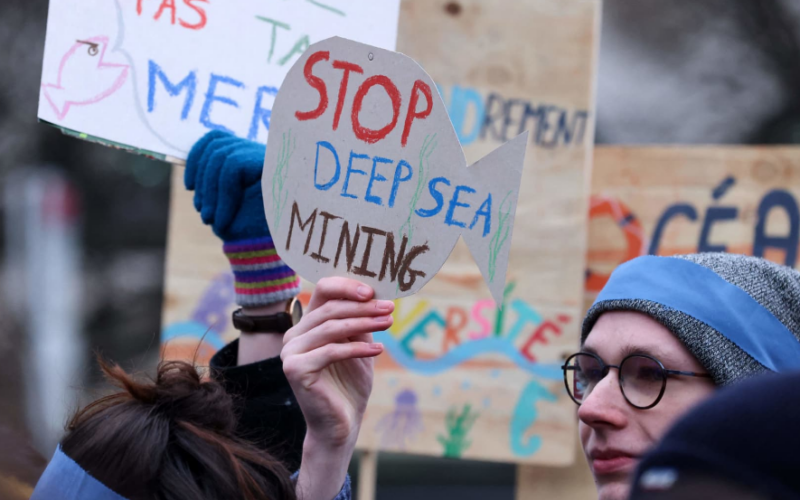Norway stands on the brink of becoming one of the first nations to endorse the contentious practice of deep-sea mining, with lawmakers expected to greenlight the government’s proposal in a parliamentary vote. The move, designed to open Norwegian waters for large-scale deep-sea mining, has sparked debates between proponents emphasizing the transition away from fossil fuels and critics highlighting potential environmental risks.
In a vote on Tuesday, Norwegian lawmakers are anticipated to approve the government’s plan, which received bipartisan backing late last year. Advocates argue that extracting metals and minerals from the ocean floor is crucial for a global shift away from fossil fuels and insist that deep-sea mining is less environmentally harmful than its land-based counterpart.
Critical minerals such as cobalt, nickel, copper, and manganese, essential for electric vehicle batteries and renewable energy technologies, are the target of deep-sea mining. However, critics, including the Environmental Justice Foundation, contend that the potential benefits do not outweigh the associated environmental and economic risks. Scientists caution that the full impact of deep-sea mining remains challenging to predict.
Norway’s proposal allows companies to seek licenses for deep-sea mining in its national waters near the Svalbard archipelago, an area estimated to be larger than the U.K. at approximately 280,000 square kilometers. The government plans to review mining license proposals on a case-by-case basis, should the parliamentary vote favor the initiative.
Norway’s potential approval of deep-sea mining diverges from the stance taken by the U.K. and the European Commission, both advocating for a temporary ban due to environmental concerns. The Norway Environment Agency has criticized the government’s impact assessment, and 120 EU lawmakers urged rejection of the project, expressing concerns about marine biodiversity, climate change acceleration, and impacts on traditional activities like fisheries.
Over 800 marine science and policy experts worldwide, in an open letter, called for a pause on deep-sea mining, emphasizing the limited understanding of deep-sea habitats and biodiversity. The letter stresses the need for more comprehensive research before proceeding with large-scale mining activities, considering the significant importance of the ocean to the planet and humanity.
As Norway stands at the forefront of potentially endorsing deep-sea mining, the decision’s implications for the environment, marine biodiversity, and global efforts to transition to sustainable practices remain subjects of intense debate. The parliamentary vote will shape Norway’s position on this contentious issue and influence the ongoing discourse surrounding the environmental impact of deep-sea mining worldwide.








